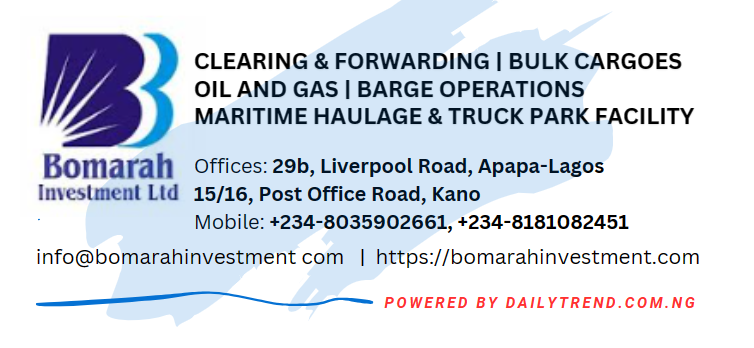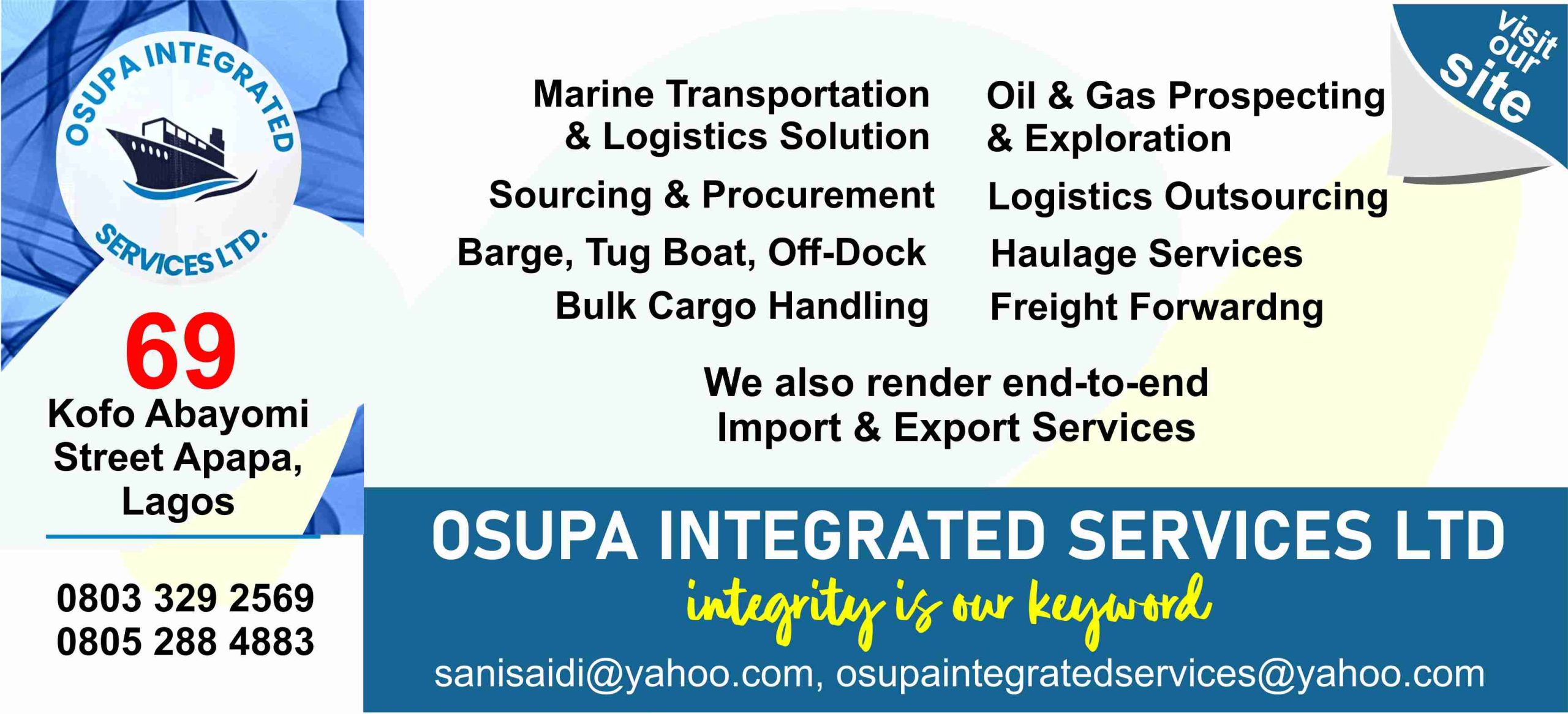At TCAN Summit, Oyetola, Alkali Announce Plans to Link All Seaports in Nigeria to Railway

R-L: President of Transport Correspondents Association of Nigeria (TCAN) Mr Tola Adenubi, Director of Maritime Services, Federal Ministry of Marine and Blue Economy, Dr Mercy Ilori, and the Managing Director of Nigerian Railway Corporation, Dr Kayode Opeifa at the 2025 TCAN Summit held at the Radisson Hotel Ikeja Lagos on Wednesday
By DAPO OLAWUNI
The Minister of Marine and Blue Economy, Adegboyega Oyetola and his counterpart at the Ministry of Transportation, Sa’idu Ahmed Alkali has revealed ongoing plans to link all Nigerian Seaports to the rail system for efficient cargo evacuation.

Speaking at the 2025 Nigeria Transport Sector Summit organized by the Transport Correspondents Association of Nigeria (TCAN) in Lagos on Wednesday with the theme “Driving The Transport Logistics Value Chains for Economic Growth”, Minister of Transportation, Alkali who was represented by Managing Director of Nigerian Railway Corporation (NRC) Dr Kayode Opeifa stated that the federal government is on the verge of making Apapa port a logistics hub. He also said that all the inland dry ports would be connected by rail.
“This government has revealed a plan that would link all the seaports in Nigeria to the rail corridor. Lagos port complex would be linked to the Tin Can port, Warri Port on the central line would be linked to warri port, Port Harcourt central line would be linked to Onne Port. These have been listed as first priority, this would increase logistics and lead to economic growth
“As at today, over 25 logistics companies are operating logistics from Apapa port, Papalanto, Kajola, Ibadan Moniya, from Ilorin, and Warri, they are moving goods by rail. On the Lagos corridor, the narrow gauge is the best option we have now for logistics”
“All the inland dry ports are unable to access rail because of security challenges, the good news is that the Governors of Kaduna and Niger State are working and have decided that there would be no security challenges in moving goods from Lagos to Kaduna and Kano”
“We are planning to turn Apapa into a logistics hub, before the end of the year, I bet you, something great would happen in Apapa, there would be a new logistics hub, just like SIFAX Group did with Ijora” he said

According to Minister, the ongoing rail modernization projects from Lagos-Kano, the rehabilitated Old Narrow Gauge from Lagos to Kano and the ongoing rehabilitation of the Old Narrow Gauge from PortHacourt-Maiduguri with many more new projects like the High Speed Rail from Lagos to Abuja, Lagos to Kano and PortHacourt to Abuja are sufficient indicators of the Administration’s concerns for the development of the transportation sector in Nigeria.
Also speaking at the Summit, Minister of Marine and Blue Economy, represented by the Director of Maritime Services Department, Dr Mercy Ilori confirmed that the completion and operationalisation of the Lagos–Ibadan Standard Gauge Rail line has supported cargo evacuation at the Lagos Port Complex, Apapa.
“This line now connects directly to inland container depots and dry ports. Our collaboration with the Federal Ministry of Transportation is extending such linkages to other major ports in various parts of the country” he said
Continuing, he said “We have promoted barge operations as a short-to-medium-term solution to road congestion. Today, growing volumes of cargo are being successfully moved by barge from Lagos and Onne ports to hinterland destinations”
Other transport experts at the Summit included the Managing Director of Truck Transit Park Limited (TTP) Mr Jamal Onwubuariri, representative of the Nigerian Shippers Council, Mr James Atilola among others.
In his welcome address, the Chairman of TCAN, Mr Tola Adenubi stressed the need to put more resources into ensuring more cargoes leave Nigerian ports via the waterways.
“Aside from prolonging the lifespan of our roads, the efficient use of barges to freight cargoes in and out of our ports will reduce traffic congestion on our roads, and also provide lower-cost, environmenta friendlier alternative for moving bulk goods and containers to and from our ports.
“However, Nigeria has continued to pay lip service to the improvement of these mode of transportation, leaving many barge owners bankrupt and struggling to remain in business.
“No doubt, adequate funding would enable barge operators to expand fleet capacity, improve safety standards, and ease congestion in the nation’s ports.
However, that transport mode has remained poorly underutilised, leaving the country to rely heavily on road haulage which continues to reduce the life-span of our roads” Adenubi stated.







